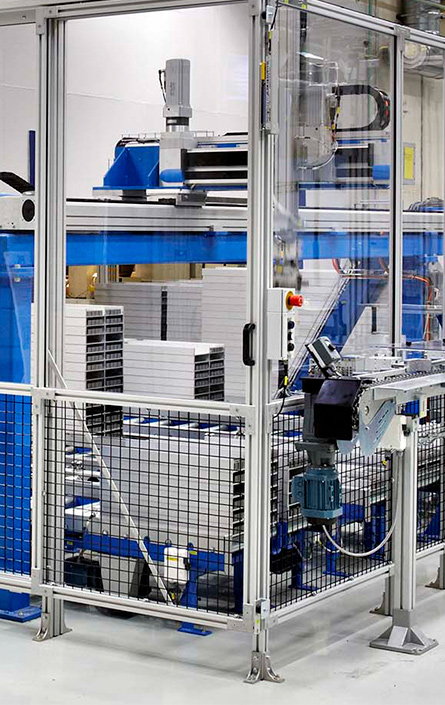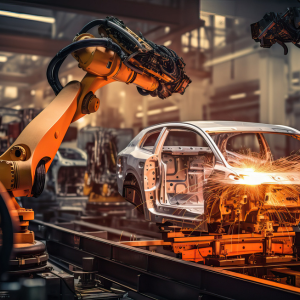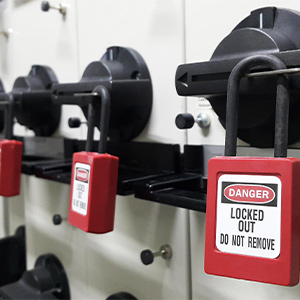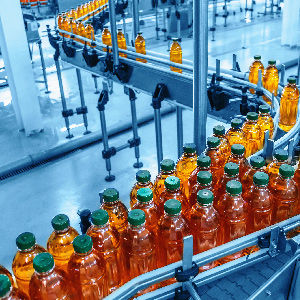PUWER Assessments
Everything You Need to Know
Post By: Tom Rowse On: 06-12-2018 - Manufacturing - Safety
Safety in the workplace is always a primary factor in any equipment or plant design, together with proper care of employees. One important means of ensuring your workers are fully protected is to carry out a PUWER assessment, checking that all your equipment, machinery and personnel are in compliance.
What is a PUWER Assessment?
PUWER is one of those annoying acronyms with which modern life is plagued, and refers to the Provision and Use of Work Equipment Regulations. These were updated from the previous 1992 rules in 1998 (1999 for Northern Ireland), to incorporate some necessary additions and amendments. The regulations (often called PUWER Regs) are intended to ensure human safety wherever machinery and work equipment is used in the workplace. PUWER Assessments therefore refer to the safety checks that should be conducted by any company using "Work Equipment".
The Regulations define work equipment as any machinery, apparatus, appliance, installation or tool intended for use in the workplace (whether this use is exclusive or not). This includes any equipment at work that employees might provide for their own use, and therefore makes the scope of the definition very wide. The "use of work equipment" also has a very broad interpretation and can include any activity that involves the work equipment, such as programming, setting, starting, stopping, modifying, repairing, maintaining, transporting, servicing and cleaning.
Specific rules were added in 1992 for mobile work equipment, which includes such items as dumper trucks and fork-lifts, as well as robotic assistants that are independently mobile. If the mobile work equipment is intended to carry human beings, you must make sure it is suitable for that purpose. Measures must be taken to reduce any risks to the safety of humans on or in the equipment (such as it rolling or tipping over), to the operators, and to any other personnel in the vicinity of the equipment's operation.
Specific rules were also added for power presses, stating that power presses and any associated guards or protective devices must be thoroughly inspected and documented by a competent person (such as an ISI), on a regular basis and at frequent intervals.

What Does PUWER Do?
PUWER is designed to make every human's working life safer when using or having contact with any equipment or machinery in the workplace. This includes not only a company's employees, but also its suppliers, contractors, the employers themselves and anyone else at all who might own, operate, have access to or control such equipment.
The PUWER requirements state that all equipment that is provided for operation at work must be:
- suitable for its intended use
- safe for operation and maintained so as to be always in a safe condition
- regularly inspected to make sure the machine has been installed correctly and that there is no subsequent deterioration in its condition
- operated only by personnel who are adequately informed, instructed and trained in its proper use
- accompanied by appropriate health and safety features that provide protective controls, through devices such as warning lights/sounds and emergency stops, clearly visible markings and sufficient means to isolate the machine from energy sources
Power presses and mobile work equipment must be used in accordance with their specific additional requirements.
Some other types of work equipment are governed by additional specialised health and safety legislation as well as PUWER. These include:
- PPE Regulations, for Personal Protective Equipment (such as clothing);
- Pressure Systems Safety Regulations, for pressurised equipment; and
- LOLER, specifically for Lifting Operations and Lifting Equipment.
Who Does PUWER Apply To?
PUWER applies to anyone conducting work activities throughout the UK jurisdiction, which means not only the whole of Great Britain's land mass but also its offshore installations such as gas supply platforms, wind turbines and oil rigs. PUWER inspection regulations apply to all employers or self-employed persons who provide or control the use of equipment in the workplace, as well as those whose job it is to manage or supervise the use of work equipment operated by other personnel.
PUWER can cover workplaces where other safety regulations already apply, such as the Health and Safety at Work (HSW) Act 1974. These locations may include not only factories, shops and offices, but also hospitals, hotels, and premises for public entertainment. PUWER is also applicable to temporary workplaces such as construction sites and the common parts of shared premises.
Businesses large and small are subject to these Regulations, including contractors and the self-employed, whether or not you are operating for profit. They do not, however, apply to work equipment used by the general public (such as the compressed air lines available for public use on a garage forecourt) which falls within the purview of HSW. Neither does it apply to anyone who has sold or supplied work equipment, as the safety of its use is the responsibility of the purchaser. PUWER Regs do apply to equipment operated by people using their home as a workplace, but they do not apply to machines used for domestic work within a private household.
While PUWER does not impose specific duties on the employees who personally operate the equipment, these personnel are still subject to obligations under HSW and also the MHSWR (Management of Health and Safety at Work Regulations) 1999. These two instruments oblige employees to take reasonable care of themselves and of any others around them at work who may be affected by what they are doing, as well as to co-operate with other personnel.
How Can Rowse Help?
At Rowse we are machine safety experts who can provide you with a full PUWER Assessment service. When the assessment is complete, every customer will receive a full, detailed report and recommendations. Some of our staff are also accredited with the CMSE® qualification (Certified Machinery Safety Expert, as certified by TÜV Nord), and are always happy to advise you.
Get More From Rowse Straight To Your Inbox




